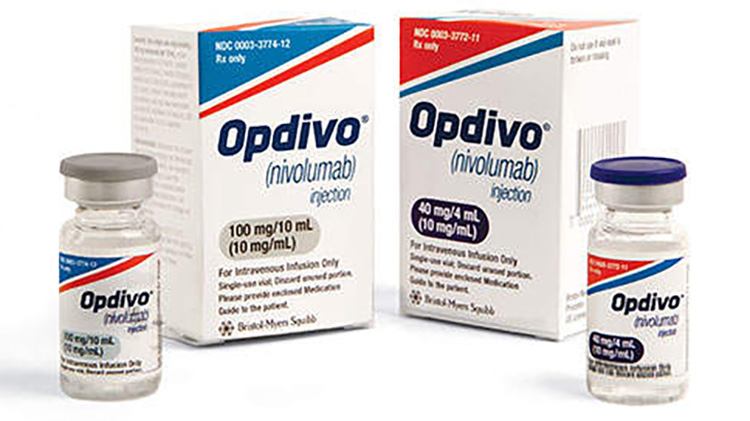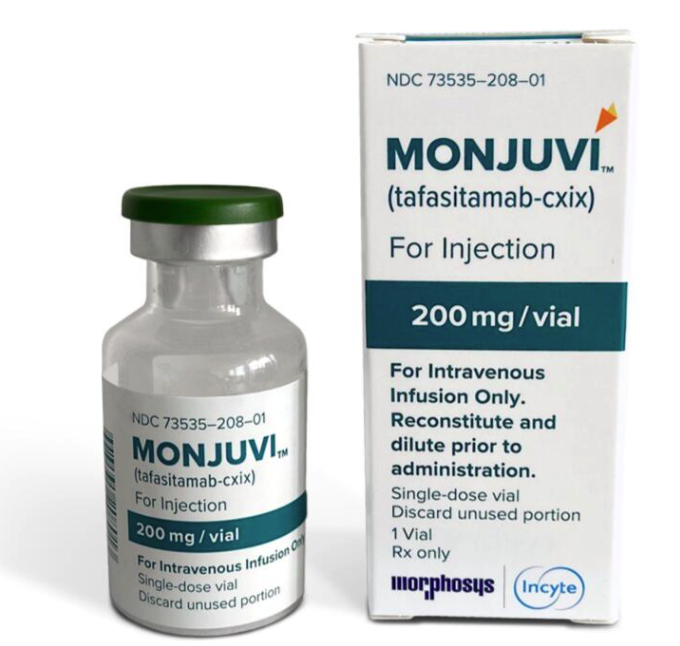Opdivo (Nivolumab) vs Monjuvi (tafasitamab-cxix)
Opdivo (Nivolumab) vs Monjuvi (tafasitamab-cxix)
Opdivo (nivolumab) is an immune checkpoint inhibitor that works by blocking the PD-1 pathway, which can help the immune system detect and fight cancer cells; it is widely used in various types of cancers, including melanoma, lung cancer, and kidney cancer. Monjuvi (tafasitamab-cxix), on the other hand, is a CD19-directed cytolytic antibody indicated for the treatment of adult patients with relapsed or refractory diffuse large B-cell lymphoma (DLBCL), and is often used in combination with lenalidomide. The choice between Opdivo and Monjuvi would depend on the specific type and characteristics of the cancer being treated, as well as the patient's overall health, previous treatments, and potential side effects of each medication.
Difference between Opdivo and Monjuvi
| Metric | Opdivo (Nivolumab) | Monjuvi (tafasitamab-cxix) |
|---|---|---|
| Generic name | Nivolumab | Tafasitamab-cxix |
| Indications | Various types of cancers including melanoma, lung cancer, kidney cancer, bladder cancer, head and neck cancer, and others. | Relapsed or refractory diffuse large B-cell lymphoma (DLBCL) |
| Mechanism of action | PD-1 inhibitor that enhances the immune response against cancer cells | CD19-directed cytolytic antibody |
| Brand names | Opdivo | Monjuvi |
| Administrative route | Intravenous infusion | Intravenous infusion |
| Side effects | Fatigue, rash, musculoskeletal pain, pruritus, diarrhea, nausea, and others. | Fatigue, fever, diarrhea, respiratory tract infections, and others. |
| Contraindications | Known hypersensitivity to nivolumab or any of its excipients | Known hypersensitivity to tafasitamab or any of its excipients |
| Drug class | Programmed death receptor-1 (PD-1) blocking antibody | Monoclonal antibody |
| Manufacturer | Bristol-Myers Squibb | MorphoSys and Incyte |
Efficacy
Overview of Opdivo (Nivolumab) in Lymphoma Treatment
Opdivo, also known as Nivolumab, is a programmed death receptor-1 (PD-1) blocking antibody used in cancer immunotherapy. It has shown efficacy in the treatment of several types of cancer, including lymphoma. Specifically, Nivolumab has been evaluated for its effectiveness in treating classical Hodgkin Lymphoma (cHL) after failure of autologous stem cell transplant (ASCT) or after at least two prior therapies in patients who are not ASCT candidates. Clinical trials have demonstrated that Nivolumab can induce a significant response rate in relapsed or refractory cHL, leading to its approval by regulatory agencies for this indication.
Efficacy of Monjuvi (Tafasitamab-cxix) in Lymphoma Treatment
Monjuvi, known as Tafasitamab-cxix, is a CD19-directed cytolytic antibody indicated for the treatment of adult patients with relapsed or refractory diffuse large B-cell lymphoma (DLBCL). It is not intended for the treatment of patients with DLBCL who are eligible for autologous stem cell transplant. In clinical studies, Tafasitamab, in combination with lenalidomide, has shown to improve overall response rates and progression-free survival in this patient population. The combination has been granted accelerated approval based on these efficacy outcomes, with continued approval contingent upon verification and description of clinical benefit in confirmatory trials.
Comparative Efficacy in Lymphoma
When comparing the efficacy of Opdivo and Monjuvi, it is important to consider the specific type of lymphoma being treated, as each medication targets different aspects of the disease's pathology. Opdivo's mechanism of action as a PD-1 inhibitor is particularly effective in cHL, where it has been shown to reactivate the host immune response against tumor cells. On the other hand, Monjuvi's targeting of CD19 on B cells makes it a suitable treatment for DLBCL, where it works synergistically with lenalidomide to enhance anti-tumor activity. The efficacy of these drugs is highly dependent on the subtype of lymphoma and the patient's prior treatment history.
Conclusion on the Efficacy of Opdivo and Monjuvi in Lymphoma
In conclusion, both Opdivo and Monjuvi have shown significant efficacy in the treatment of different subtypes of lymphoma. Opdivo has been a valuable option for patients with relapsed or refractory cHL, particularly after other treatments have failed. Monjuvi, in combination with lenalidomide, has provided a new therapeutic option for patients with relapsed or refractory DLBCL who are not candidates for ASCT. The continued use and investigation of these therapies are essential to improve outcomes for lymphoma patients, with ongoing clinical trials aiming to further define and expand their roles in treatment protocols.
Regulatory Agency Approvals
Opdivo
-
European Medical Agency (EMA), European Union

-
Food and Drug Administration (FDA), USA

-
Health Canada

-
Pharmaceuticals and Medical Devices Agency (PMDA), Japan

-
Therapeutic Goods Administration (TGA), Australia

-
Medsafe (NZ)

Monjuvi
-
Food and Drug Administration (FDA), USA

Access Opdivo or Monjuvi today
If Opdivo or Monjuvi are not approved or available in your country (e.g. due to supply issues), you can access them via Everyone.org.
How it works

Make an enquiry
Choose the medicine you want to buy, answer a couple of questions, and upload your prescription to speed things up. We’ll get back to you within 24 hours.


Make an enquiry
Choose the medicine you want to buy, answer a couple of questions, and upload your prescription to speed things up. We’ll get back to you within 24 hours.


Breeze through the paperwork
We'll guide you through the required documents for importing unapproved medicine, ensuring you have all the necessary information.


Get a personalized quote
We’ll prepare a quote for you, including medicine costs and any shipping, administrative, or import fees that may apply.


Receive your medicine
Accept the quote and we’ll handle the rest - sourcing and safely delivering your medicine.

Some text on this page has been automatically generated. Speak to your physician before you start a new treatment or medication.
Let's talk
If you have any questions, call us or send us a message through WhatsApp or email:
Contact us




